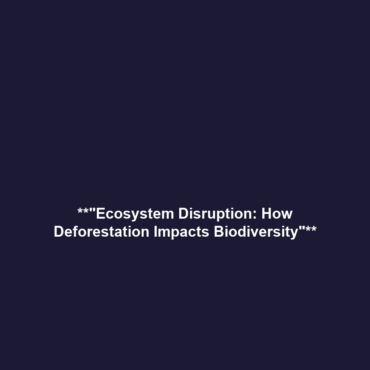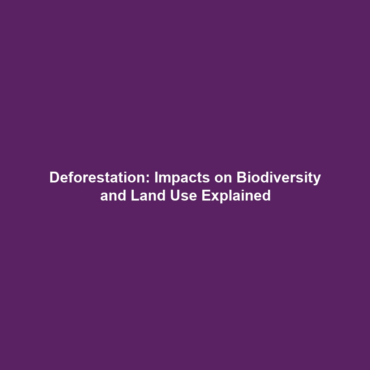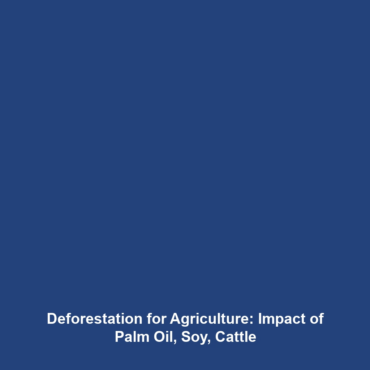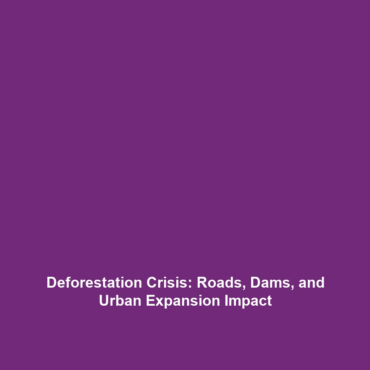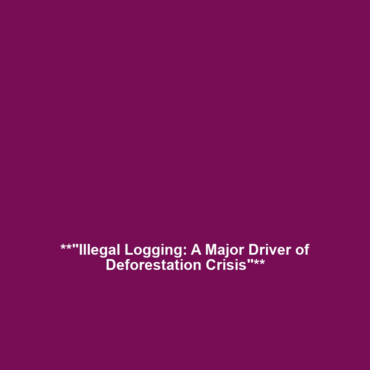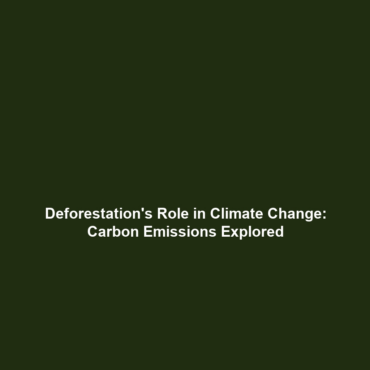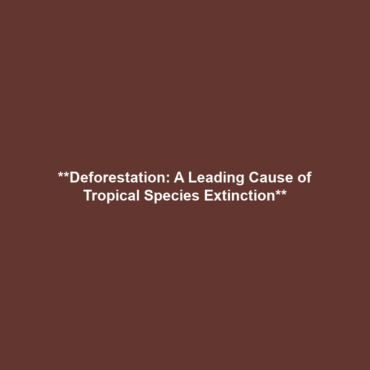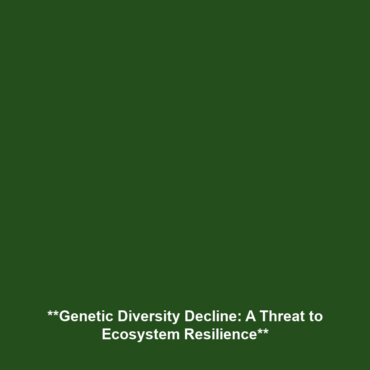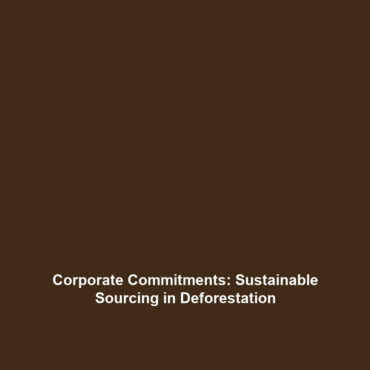Disruption of Ecosystem Services: Impact on Natural Processes
The disruption of ecosystem services is a critical issue magnified by ongoing deforestation and biodiversity loss. Ecosystem services encompass the benefits humans derive from nature, including clean water, pollination, and carbon sequestration. As natural habitats are degraded, these essential services are eroded, resulting in a cascade of ecological consequences. Understanding the impact of this disruption on natural processes is vital in addressing the broader issues of environmental degradation and sustainable development.
Key Concepts
Several key concepts are worth exploring in relation to the disruption of ecosystem services and its impact on natural processes:
- Ecosystem Services: These refer to the various benefits ecosystems provide to humans, including provisioning, regulating, cultural, and supporting services.
- Natural Processes: Essential biological and physical processes that maintain ecosystem health, such as nutrient cycling, pollination, and seed dispersal.
- Deforestation: The large-scale removal of trees which directly affects biodiversity and disrupts ecosystem services.
- Biodiversity Loss: The decline in the variety of life on Earth, which is intrinsically linked to the effective functioning of ecosystems.
Applications and Real-World Uses
The applications of assessing the disruption of ecosystem services offer valuable insights into managing the environmental challenges posed by deforestation and biodiversity loss:
- Land Management: Understanding ecosystem services can guide land-use planning to minimize negative impacts on natural processes.
- Restoration Ecology: Techniques are employed to restore ecosystems, enhancing their ability to provide essential services.
- Conservation Strategies: Effective strategies can be devised by recognizing the link between biodiversity and ecosystem service provision.
Current Challenges
There are several challenges in studying and applying knowledge regarding the disruption of ecosystem services:
- Data Gaps: Insufficient data on ecosystem services limits understanding and decision-making.
- Interdisciplinary Complexity: The intertwining of ecological, social, and economic factors complicates analysis.
- Policy Implementation: Bridging the gap between scientific findings and practical policy action remains challenging.
Future Research and Innovations
Future research in the disruption of ecosystem services focuses on innovations that can mitigate the effects of deforestation and biodiversity loss:
- Remote Sensing Technology: Utilized for monitoring land use changes and ecosystem health.
- Genetic Biodiversity Studies: Researching resilient species that can thrive amidst environmental changes.
- Ecological Modeling: Advanced models help predict outcomes of ecosystem service disruption under various scenarios.
Conclusion
The disruption of ecosystem services significantly impacts natural processes, illustrating a direct correlation with deforestation and biodiversity loss. Urgent action is required to restore and conserve these ecosystem services to ensure ecological balance and human well-being. For further reading on how we can address these challenges, visit our articles on Forest Conservation and Biodiversity Preservation.
